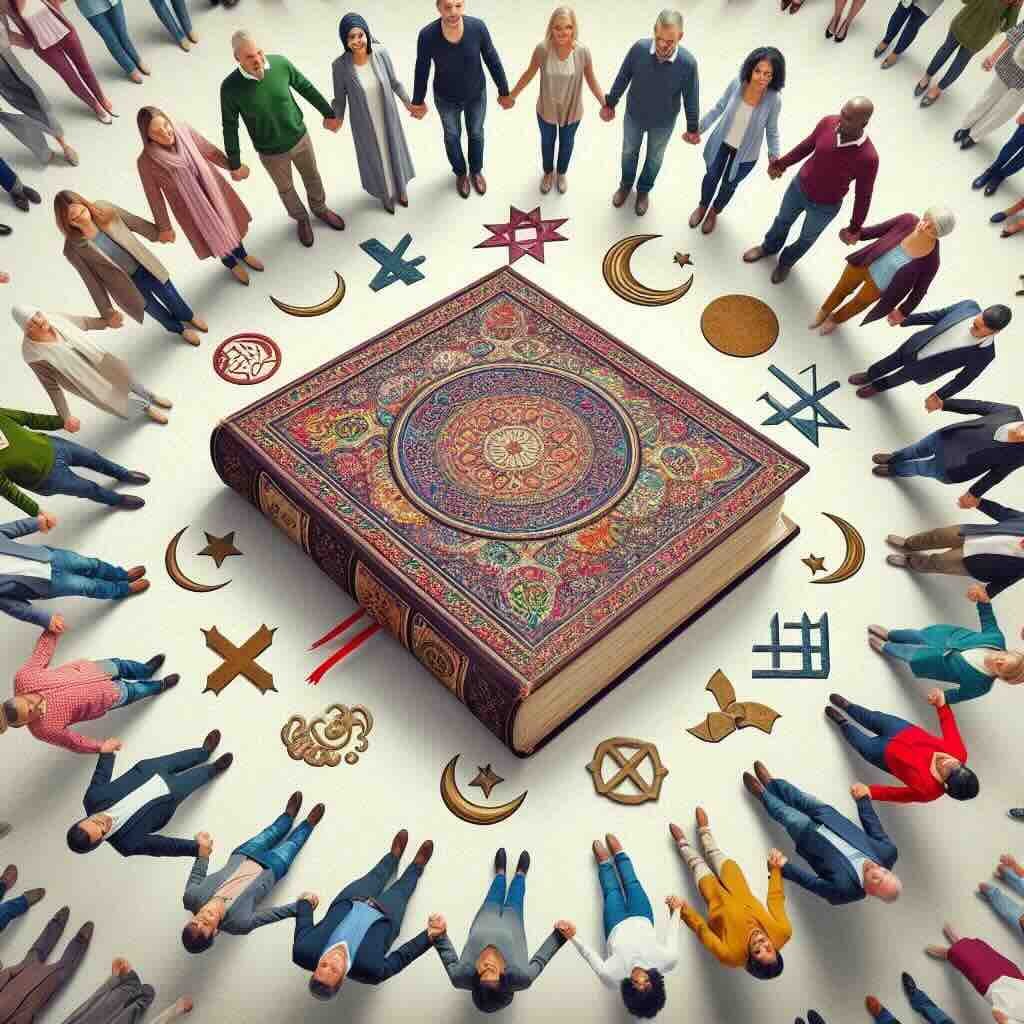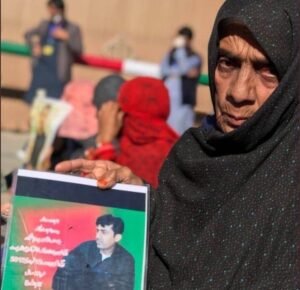Blasphemy Law: A Curse in Pakistan

@Microsoft Bing
By Fatima Chaudhary
It is undoubtedly true that violence perpetrated in the name of religion is alarmingly prevalent and is on the rise in Pakistan. Strangely enough, Pakistan has not carried out a single execution under its blasphemy laws, while since 1987, as many as 88 individuals accused of blasphemy have been killed by mobs.
The blasphemy laws were first introduced (1860) by the British to control religious violence. These were later amended by General Zia-ul Haq (1977–1988), according to which disrespecting the Holy Prophet or desecrating the Holy Quran became capital offences, punishable by death.
In the latest incident where the blasphemy laws were given effect to a Christian youth Ehsan Shah was sentenced to death. Earlier, in the third week of June, a young tourist from the Punjab was burnt to death by a mob in a town in Swat district of Khyber Pakhtunkhwa (KPK).
Blasphemy thus rules Pakistan and the mobocracy in that nation has taken full advantage of the State’s inability to control religious violence to settle personal scores and more importantly, show the religious fervor of the people of Pakistan, in most cases, in a negative light.
The brutal incident involving the tourist from Punjab took place (21 June 2024) in Swat’s Madyan area, where the outsider was accused of blasphemy and subsequently burnt alive while he was in police custody. As the Dawn newspaper editorially confessed, “Such ghastly behavior has become the norm in Pakistan as these incidents occur with alarming frequency.”Mob mentality leads often to lynching of individuals following the accusations of blasphemy.
There have also been instances of suspected criminals being beaten to death or shot by mobs. Both these forms of “mob justice” underscore the weakening authority of the Pakistan state. The seriousness of the social crisis in this regard is reflected by the fact that since 1987, more than 2,000 people have been accused of blasphemy.
Blasphemy Deadly Toll
The Centre for Social Justice, a Lahore-based independent group based in Lahore which put together data on blasphemy cases in Pakistan assesses that at least 88 people have been killed because of such allegations.
It is worth reiterating that the individual accused of desecration in Swat was not the first to suffer a painful death and will certainly not be the last. Prior to that there were victims like Priyantha Kumara, a Sri Lankan national and most notably Mashal Khan, a university student in 2019 who fell on account of their ostensibly blasphemous words or actions.
In the case of Ehsan Shah, the Anti-Terrorism Court in Pakistan sentenced him to death for allegedly sharing a social media post that reportedly incited the riots in Jaranwala last year.
Dawn reported that Judge Ziaullah Khan imposed a harsh penalty, including a 22-year prison term and a fine of Pakistani Rupees (PKR) 1 million, on Ehsan Shan.
More recently, a Christian man in Sargodha was accused of blasphemy and attacked. He later succumbed to his wounds. Additionally, in 2023 rioters ransacked and desecrated several churches in Jaranwala, Punjab on communal grounds. This is the new norm in Pakistan which make living conditions for minorities go from bad to worse.
It is commonplace in Pakistan to see that accusations of blasphemy, whether true or false, leading to extreme social violence and, in some cases, lynching of the accused by a frenzied mob.
Vigilantism is on the rise across Pakistan, particularly in Karachi, and people often take it upon themselves to deliver ‘justice’. This is primarily due to the failure of law enforcement agencies to curb street crime.
Tragically, in several such instances, innocent people are killed, as victims are falsely labelled as criminals to settle personal scores. Incidents of vigilante justice highlights how religious extremism has permeated Pakistan’s body politic and such groups having a free rein to cause mayhem in the name of religion.
As per the latest official data (available for 2021), 89 people have been extrajudicially killed, from roughly 1,500 accusations and cases. The actual number is believed to be higher because not all blasphemy cases get reported in the press.
More than 70% of the accused were reported from one province – Punjab (1,098), followed by Sindh (177), Islamabad Capital Territory (ICT) (55), Khyber Pukhtunkhwa (KPK) (33), Balochistan (12), and Azad Jammu & Kashmir (AJK) (11). Note that the capital of the country had more cases of blasphemy than KPK and AJK jointly had.
Rising Vigilantism and Blasphemy
That such incidents of violence and killings continue, demonstrate the failure of Pakistani civil society to curb vigilantism. Protests against blasphemy are also dangerous in themselves. For those who protest, risk their lives. Soon after death sentence was announced on Ehsan Shah, a demonstration was held outside the Karachi Press Club which included members from the Christian community, the Minority Rights March, the Aurat March, and civil society representatives. People who attended the rally called for the release of Ehsan Shan and measures to hold accountable those responsible for the arson of churches and homes in Jaranwala.
The misuse of blasphemy laws and lack of due legal process has been repeatedly raised, both domestically in Pakistan and internationally. Despite this the Pakistani government has failed to amend or repeal blasphemy laws.
Recently, Ed Clancy, the Director of outreach at the charity group Aid to the Church in Need called for an end to Pakistan’s blasphemy laws, saying the accused in such cases are “guilty before even [having] an opportunity to prove themselves.” He added that Ehsan Shan was killed “because he posted derogatory material that was alleged to be part of this uprising or the attacks on Christians last year…all he did was post something about this and therefore was considered causing violence [and] was convicted of blasphemy,” Clancy said. He cited the example of Asia Bibi, who was sentenced to death and ultimately spent almost a decade in prison after she drank from a glass that was supposed to be for Muslim women.
Blasphemy Laws and Mob Justice
Unarguably, blasphemy is an extremely sensitive matter. This is evidenced by the fact that in most cases vigilante groups adjudicate the matter long before they reach the courts. The problem in Pakistan is two-fold. First, that blasphemy laws still exist and can be used to haul up anyone for hurting religious sentiments. Second, that these laws are being constantly misused.
The prevalence of mob justice who use the law as an excuse to vent social anger is compounded by the state’s inability to restrain extremist groups.
Investigations have revealed personal interests, vendettas and property disputes between the accusers and the accused into several blasphemy cases. The tragedy is that the people who are usually most affected by the blasphemy laws are the minorities in Pakistan.
The Human Rights Commission of Pakistan states that numerous cases of baseless blasphemy accusations have occurred which have disproportionately affected minority groups such as Christians and Ahmadiyya Muslims. As seen earlier, several such incidents have resulted in deadly violence against individuals and their communities accused of blasphemy. These include a Christian couple who were lynched and burnt alive in 2014 in Kot Radha Kishan (Punjab Province) following allegations of blasphemy. At the end of the day, Pakistan will have to fundamentally alter its society and laws to give every citizen a fair chance of justice. Till such time, such killings will only continue.
Fatima Chaudhary is a lecturer at a private university in Punjab province.
Note: The contents of the article are of sole responsibility of the author. Afghan Diaspora Network will not be responsible for any inaccurate or incorrect statement in the articles.










